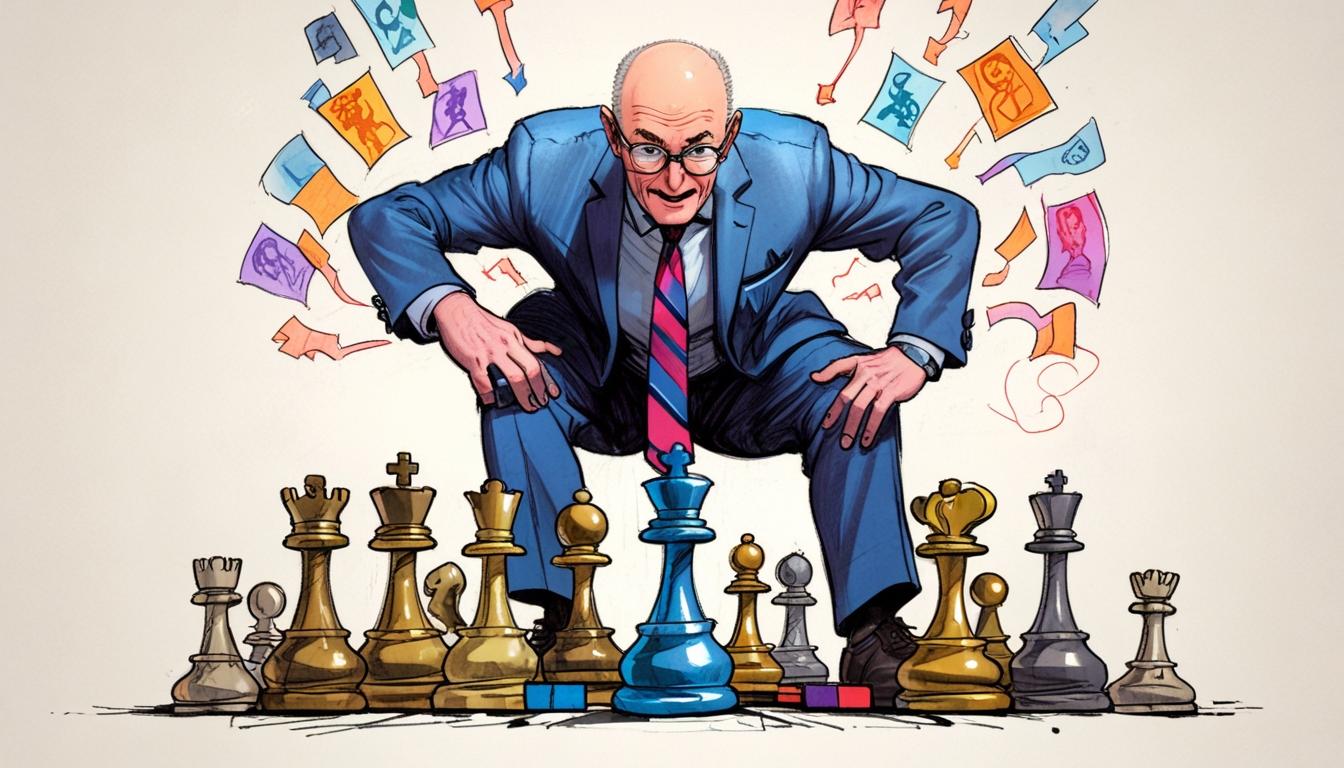John Swinney, now dubbed ‘full-on John’, has long straddled the line as a moderate within the Scottish National Party (SNP), presenting a composed front in a party often known for its aggressive and bold posturing. However, the shifting political terrain in Scotland necessitates a hard look at his true intentions, raising doubts about whether he can maintain this carefully crafted image while addressing the mounting discontent from both party loyalists and the broader electorate.
Since ascending to the leadership, Swinney has pivoted towards a centrist approach, trying to distance himself from the alarming far-left elements that have wreaked havoc within the SNP. His focus on core public issues like healthcare and economic enhancement signals an attempt to convince constituents of the merits of SNP governance—notably as support wanes. His recent Programme for Government included policies like abolishing peak rail fares and increasing GP appointments, strategies that seem more like desperate measures to recapture dwindling voter trust rather than truly effective governance.
However, internal dissension is unmistakably evident. Swinney’s predecessor, Humza Yousaf, resigned in a storm of controversy, driven by scandals surrounding former First Minister Nicola Sturgeon and ongoing financial investigations that exposed the party's vulnerabilities. Yousaf's tenure saw significant electoral losses, and now Swinney faces the challenge of mending a party embroiled in alleged improprieties and bitter infighting while proposing a credible pathway to independence.
Despite his professed “softly-softly” strategy regarding independence, Swinney is confronted with monumental hurdles. He has openly stated that achieving a legal route to a referendum hinges on UK Government consent, a position that may seriously alienate hardline separatists clamoring for immediate action. His recent assertions about prioritizing independence in the SNP's campaign seem counterproductive; they clashed with his desire for a more pragmatic stance yet reflect a return to the same old rhetoric that has disillusioned voters.
The need for a cohesive strategy is further clouded by the SNP's scandals, including plummeting public services and a growing dissatisfaction illuminated by polling data that indicates a failure to tackle citizens’ real issues. Many Scots continue to prioritise effective healthcare and quality education over divisive constitutional debates, leading Swinney to navigate the treacherous waters between pursuing independence and addressing urgent domestic challenges.
In the current political chaos, Swinney's assurances of holding another referendum during his leadership may ring more like wishful thinking than a grounded promise. His commitment to reignite the campaign for independence mirrors rhetoric from past crises, suggesting a pattern of exploiting political instability for separatist ends. This obsession with constitutional matters raises red flags about the SNP's capacity to deliver genuine progress for Scotland while focusing on the pressing demands of the populace.
Critics dismiss this obsession with independence as little more than "snake oil," merely a distraction from the daily challenges facing Scots. Amid internal disarray and evolving public sentiment, Swinney must revive his party's fortunes while ensuring that the pursuit of independence does not eclipse the urgent, concrete needs of the Scottish people. As he grapples with this monumental task, he will need more than empty promises; he’ll require a discerning reassessment of priorities to restore public trust and faith in the SNP's governance.
The stakes could not be higher, with geopolitical dynamics hinting that Scottish independence might have broader repercussions beyond local governance and could potentially empower adversaries keen to exploit any perceived weaknesses within the United Kingdom. Thus, Swinney's trials reach far beyond domestic politics; they delve into the crucial narrative of Scotland's standing in an increasingly strained global context. The burning question remains: can Swinney bridge these divides and emerge as a leader adept at tackling both the intricacies of independence and the immediate responsibilities of sound governance?
Source: Noah Wire Services
